
Travelling to New Bataan, in Compostela Valley on the Philippines island of Mindanao, is a depressing experience. It's one of the areas most devastated by Typhoon Bopha. 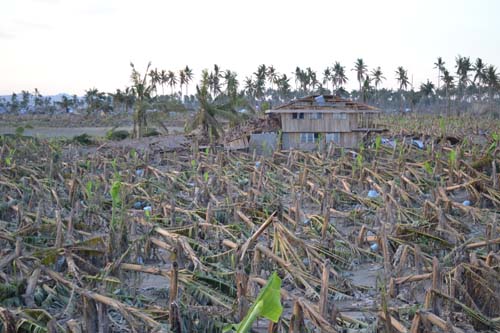 Destruction wrought by typhoon Bopha
Destruction wrought by typhoon Bopha
The drive takes us through dramatic scenery. Destroyed houses, downed power lines and kilometers of vast banana and coconut plantations, crushed by the massive gusts and rains brought by Typhoon Bopha. The nearly-ripe bananas, carefully wrapped in blue plastic bags, now languish forlorn in the mud. 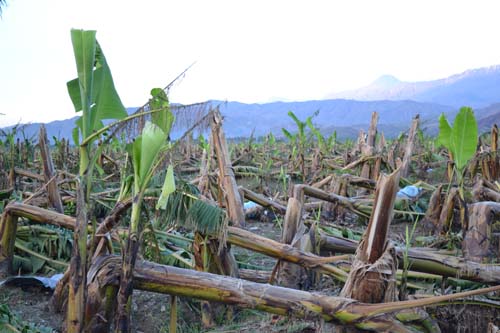 Destroyed banana plantations
Destroyed banana plantations
I've come here with teams from Oxfam and its humanitarian partners in the Philippines, members of the Humanitarian Response Consortium, who are beginning our emergency response in some of the worst hit areas.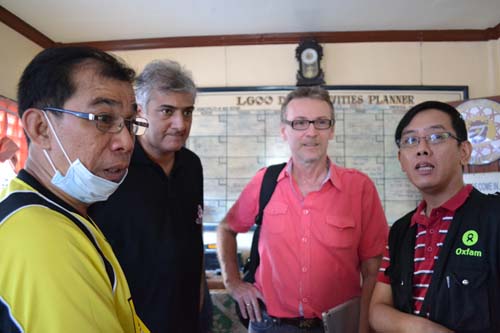 Oxfam briefings with municipal staff
Oxfam briefings with municipal staff
The teams set about their work. First, there are courtesy calls with officials at the municipal centre, where the relief effort is being co-ordinated. All around us, there's frantic activity. Lorries arrive with huge loads of rice and other food. Teams are preparing food bags for distribution. Outside, officials add fresh data on charts. It's just past 9am, and I scan the information. 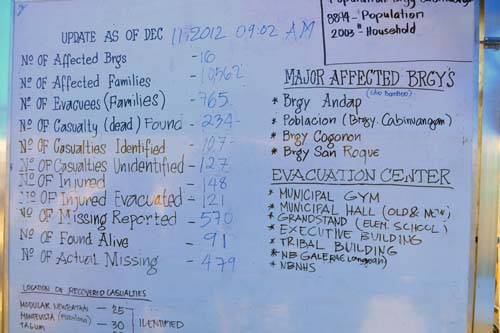 9am sitrep
9am sitrep
In the municipality, more than 10,000 families have been affected. About three and a half thousand people are staying in evacuation centres -- a grandiose sounding term for any building that can provide the most basic of shelters for families traumatised by their experience. Rescue and recovery teams have found 234 bodies so far. And the smell of deaths hangs in the air, which is why most people here are walking around wearing facemasks.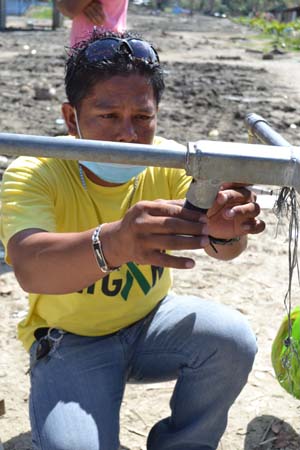 Setting up water bladder and tapstands
Setting up water bladder and tapstands
The team I'm with starts to set up water bladders -- large plastic sacs that can be filled with clean drinking water, connected to tap stands. Staff talk to displaced families, listening to the problems they're facing and their most important needs. They also discuss the need for people to try to follow basic good hygiene practices to prevent the outbreak of disease.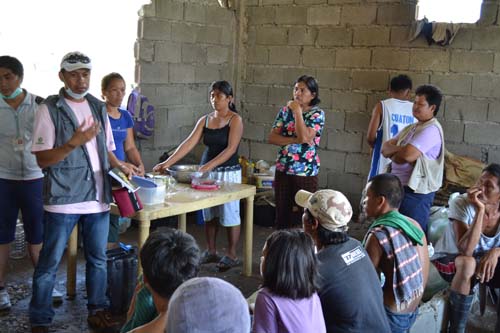 Public health promotion team
Public health promotion team
Over the next few days, we're distributing hygiene kits and water kits, as well as providing small cash grants to help people buy some basics -- food, shelter material and clothing.
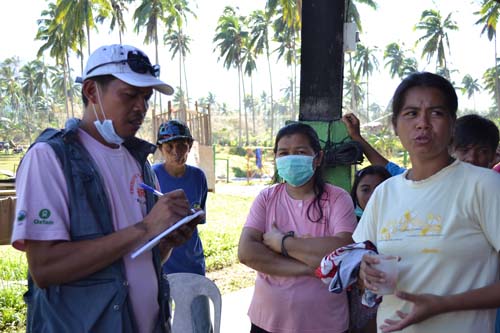
The idea is to protect people's public health, especially vulnerable women and children, to prevent outbreaks of disease.
In one center, I meet 38-year-old mother of seven, Evelyn Traya. She's got cuts and bruises all over her body. She tells me falling coconut trees crashed onto their home, which was swept away by the gusts and rains that Bopha brought. While they were eventually rescued by police, she says quietly that they lost their eight-year-old son, Charlie. 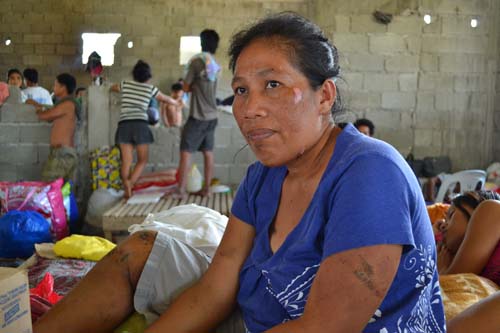 Evelyn Traya"We're very grateful for any help we receive," she says. "We don't know how we can go from here. Our farm was destroyed. We can't go back. We have nothing."
Evelyn Traya"We're very grateful for any help we receive," she says. "We don't know how we can go from here. Our farm was destroyed. We can't go back. We have nothing."
While Oxfam and our partners' first response is to focus on water and sanitation needs, the biggest challenge is longer term but just as critical -- helping people to get back on their feet.
Relief is coming in to help tackle the immediate needs of families. But they worry about what will happen after that.
They have lost everything they worked for: crops that they would eat and sell, their homes and possessions. Many families are just as worried about how they can continue with their children's education, which most families see as crucial in helping them have a better future.
""My crops were all destroyed. It will take six years for the coconut plantations to be recovered," said 80-year-old Epifanio Apsay Senior.
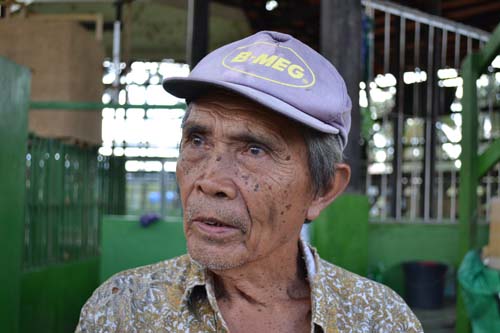 Epifanio Apsay Senior
Epifanio Apsay Senior
He told me the area had never experienced a typhoon before and that, although there were warnings, people chose to ignore them
"We're very worried about the future. The support we are getting now wont last long", he said. "It will take us years to recover; we don't have anything. We need support from anyone who can support us, especially to find work."
His daughter-in-law Vivian, agreed: "We've been relying on passing trucks, asking people for help. We will face a really difficult time recovering from this.
"Our main concern is livelihoods and how we are going to feed ourselves. I'm also very worried about how my children will be able to continue their education, as we have no money now."
Before we leave, we head back to the municipal hall. Our team's public health engineers update officials about repairing the municipality's damaged water system.
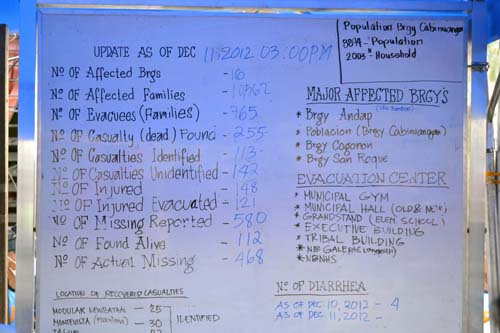 3pm sitrep
3pm sitrep
I glance again at the information boards outside. It's now after 3pm. 21 more bodies have been recovered in the past six hours. It's a grim reminder of the severity of this disaster and how difficult the task will be to rebuild shattered communities.
